This project looks at the remains of ancient settlements and farming systems that date back to at least Iron Age times and provides volunteers, students and Young Archaeologists’ Clubs with the opportunity to participate in archaeological surveys and excavations, developing skills and experience.
Rattenraw
Rattenraw Farm, near Otterburn, is an exceptionally rich historical landscape, with remains dating back to at least Iron Age times. We have been working with the landowners and volunteers from Tynedale North of the Wall Archaeology Group (NOWTAG) to investigate the farm’s diverse heritage.
Look through the photos at the bottom of the page to see the process of surveying to excavating at Rattenraw Farm. You can also read our Level 3 survey report of the Iron Age/Romano-British enclosed settlement site here, then find out about our incredibly exciting 2019 excavation and what we found here! An initial report for the 2019 dig has also been produced and can be found here.
We revisited the site again in July and August 2020, further increasing our knowledge of this fantastic site and making some new discoveries, including bringing our glass bead tally to over 100! Post excavation analysis is now being carried out and a full report on the findings of both excavations will be produced shortly.
We have also begun to look at a second site on Rattenraw Farm, which is a possible farmstead settlement of unknown age. You can find our Level 3 survey report for this site here.
Chattlehope
We carried out a Level 1 landscape survey at Chattlehope in September 2019, which identified 27 sites of potential archaeological interest and trained volunteers in how to conduct a Level 1 Archaeological Survey.
The survey indicates that the landscape around Chattlehope Farm contains a wide range of features evidencing human habitation and usage dating back into prehistoric times, as well as offering particular examples of continuity and change through medieval and post-medieval eras.
Read the full report here
Interested in taking part? Find out how to become a Field Archaeology volunteer here
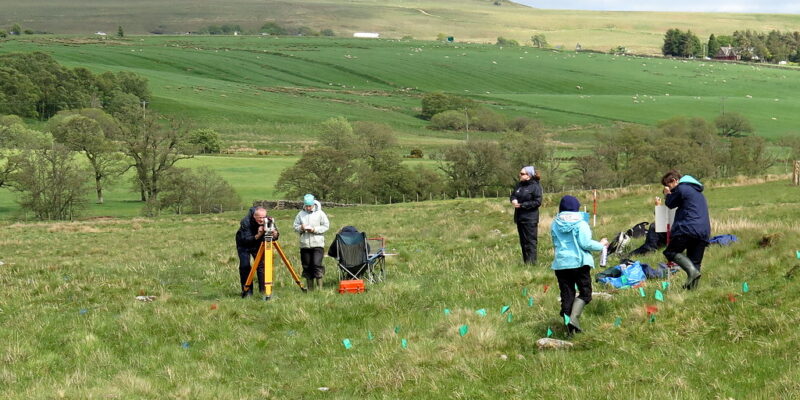 North of the Wall Tynedale Archaeology Group helped volunteers survey the site
North of the Wall Tynedale Archaeology Group helped volunteers survey the site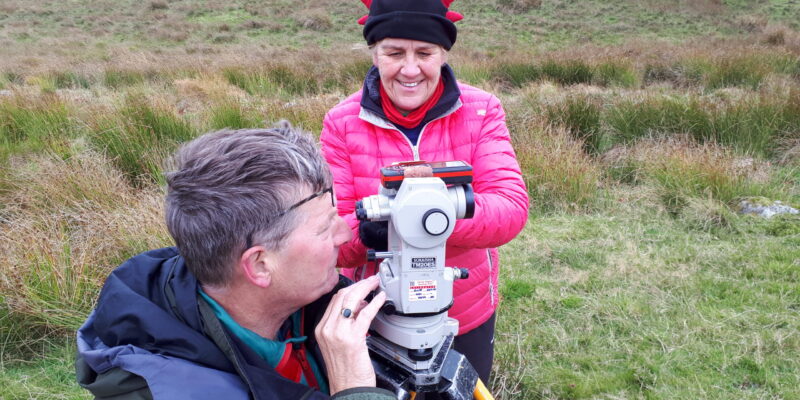 Volunteers took measurements...
Volunteers took measurements...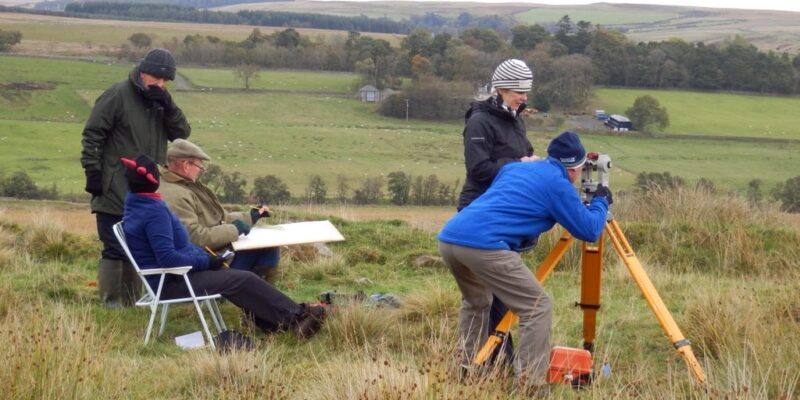 ...and sketched out an idea of what the site looked like
...and sketched out an idea of what the site looked like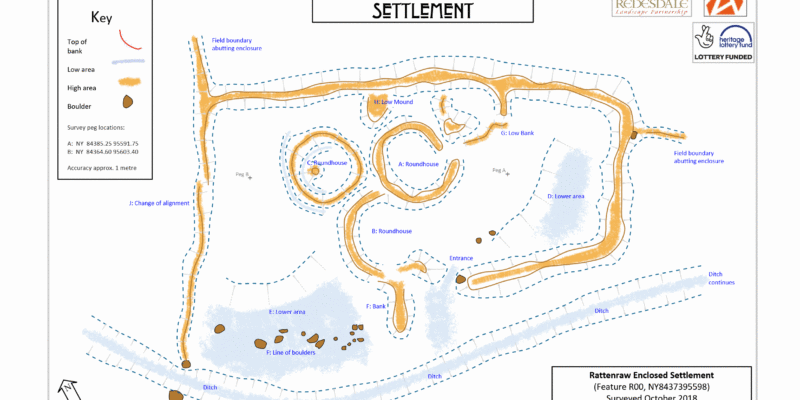 The North of the Wall Tynedale Archaeology Group set out the survey's findings in a report, showing that the enclosure was comprised of three stone-founded roundhouses and two sunken yards.
The North of the Wall Tynedale Archaeology Group set out the survey's findings in a report, showing that the enclosure was comprised of three stone-founded roundhouses and two sunken yards.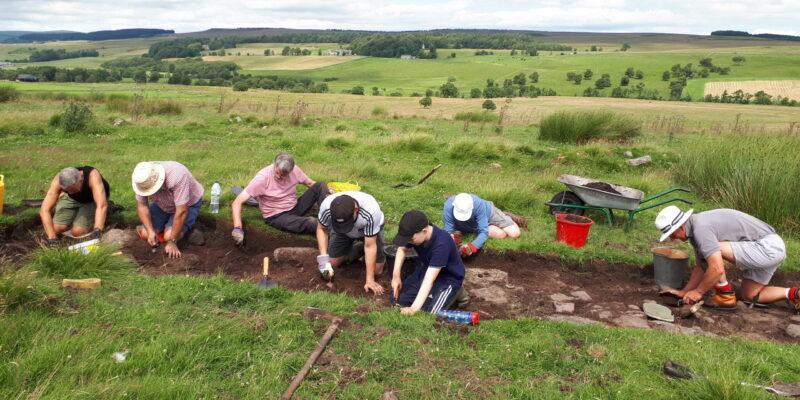 The excavation started with volunteers taking the top layer of turf off.
The excavation started with volunteers taking the top layer of turf off.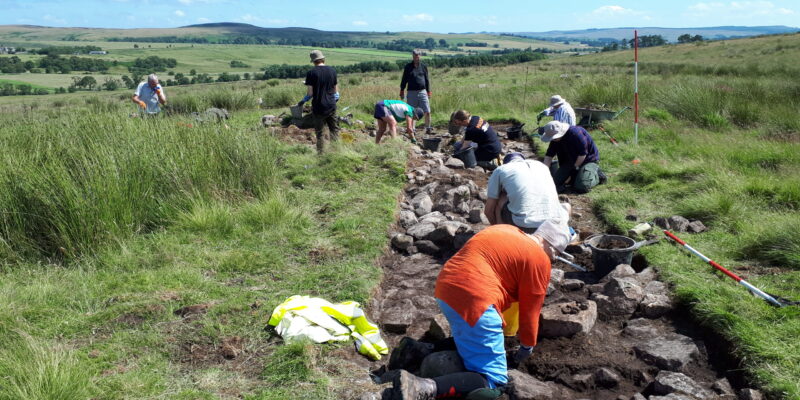 Gradually, they exposed an expansive area of stone work around the roundhouse structures...
Gradually, they exposed an expansive area of stone work around the roundhouse structures...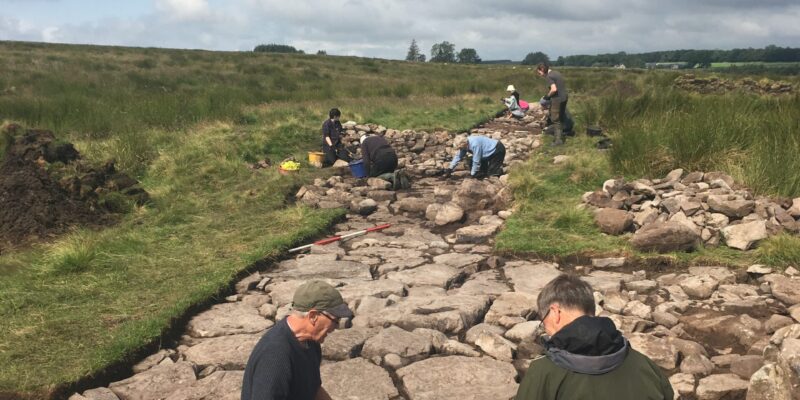 ...which turned out to be stone paving.
...which turned out to be stone paving.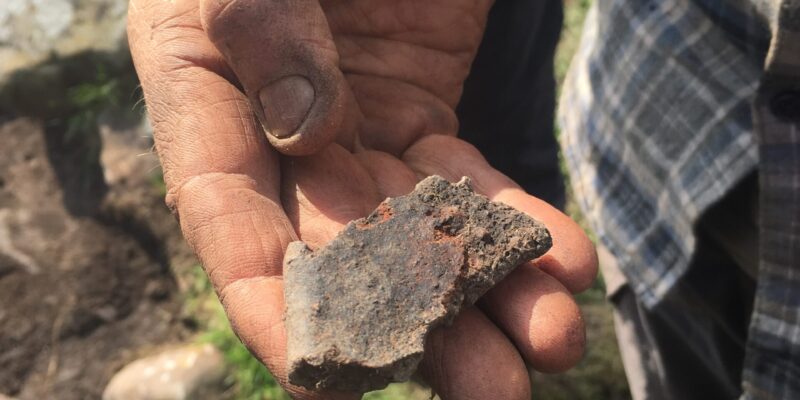 Among their finds, volunteers discovered fragments of Iron Age pottery...
Among their finds, volunteers discovered fragments of Iron Age pottery...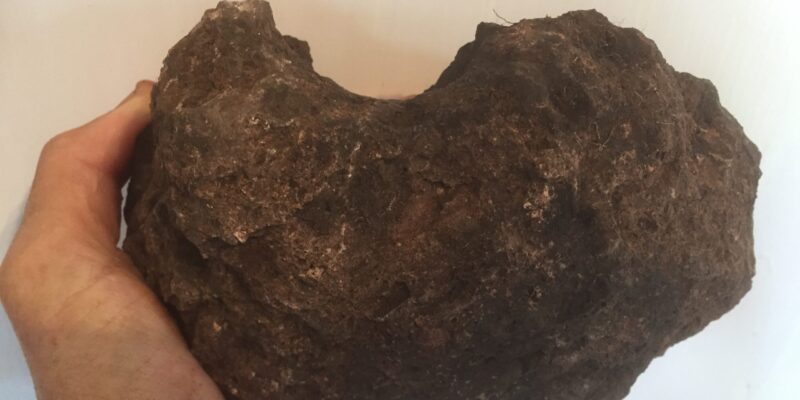 ...a section of a Quern stone, which would have been used for grinding grain and suggests the settlement was domestic...
...a section of a Quern stone, which would have been used for grinding grain and suggests the settlement was domestic...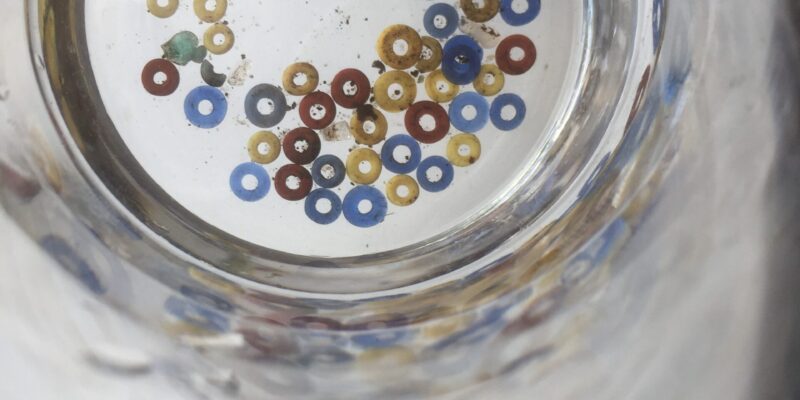 ...and over 40 multi-coloured glass beads! These would most likely have been strung together for a necklace or other piece of jewellery.
...and over 40 multi-coloured glass beads! These would most likely have been strung together for a necklace or other piece of jewellery.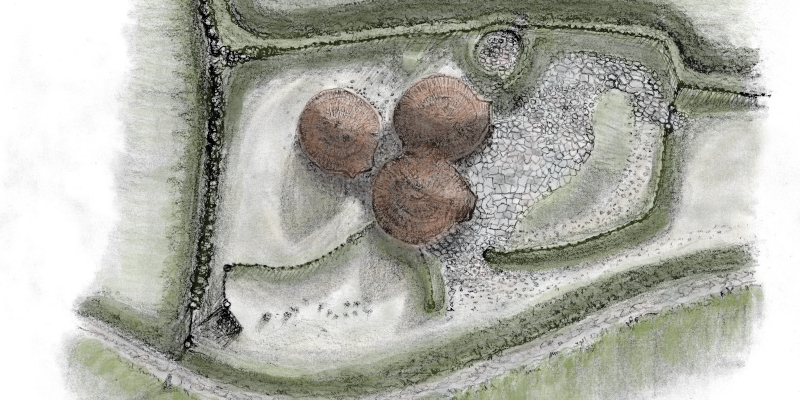 Rattenraw artists impression Keith Cooper Dec 22
Rattenraw artists impression Keith Cooper Dec 22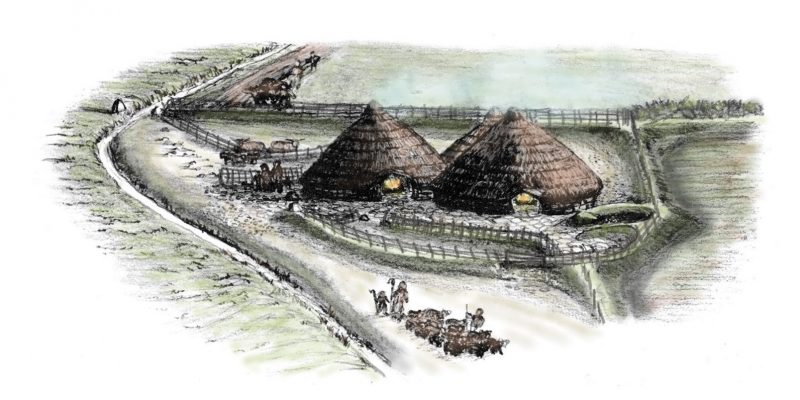 Rattenraw artists impression Keith Cooper Dec 22
Rattenraw artists impression Keith Cooper Dec 22